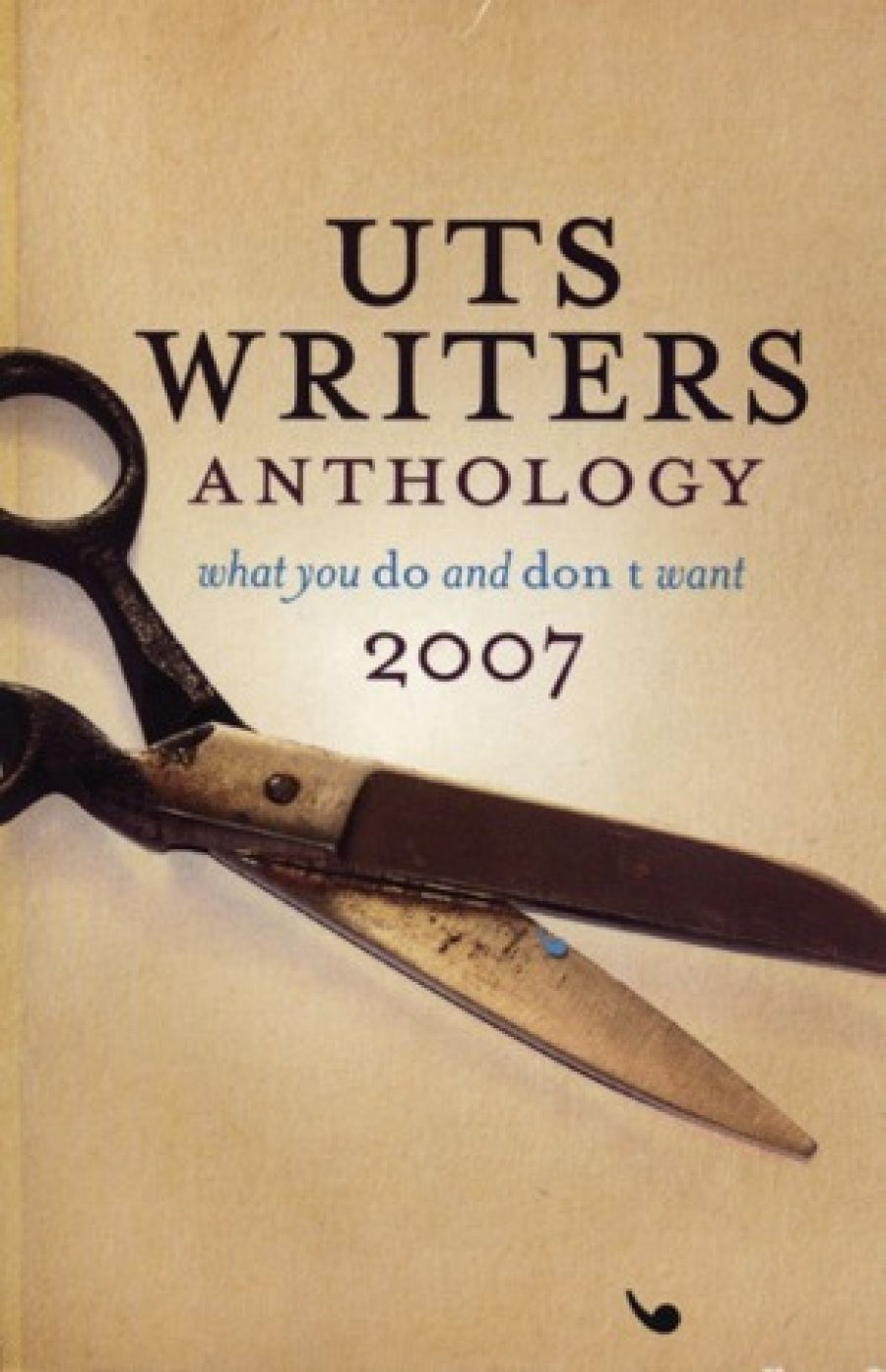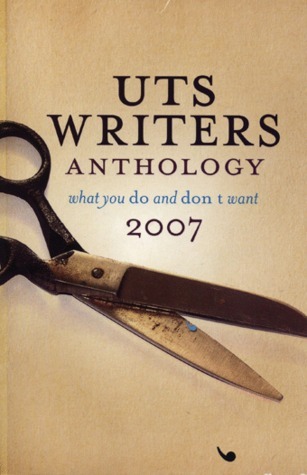
- Free Article: No
- Contents Category: Fiction
- Review Article: Yes
- Online Only: No
- Custom Highlight Text:
Creative Writing courses – those ostensible hothouses of creative ferment whose methods and very existence have been so heatedly debated in these pages and elsewhere – often appear to those of us on the outside as the breeding ground for several subspecies of writer. On the one hand, there are the determinedly postmodernist, whose highly ironic and heavily footnoted metafiction is, on average, about fifty per cent less clever than they like to think it is. On the other, there are the magic realists and wannabe lyricists, whose lilting, pastel-coloured prose seems more at home in the pages of a teenager’s personal diary than it does in those of a serious anthology. Then there are the plain-speaking reporter types, who should probably be doing journalism but, for one reason or another, have chosen Creative Writing instead.
- Book 1 Title: UTS Writers' Anthology
- Book 1 Biblio: ABC Books, $24.95 pb, 256 pp
- Book 1 Cover Small (400 x 600):

- Book 1 Cover (800 x 1200):

These may be unfair stereotypes, but the writers in this anthology do little to challenge them. Instead, by sacrificing insight and complexity in favour of shallow affectations, they reinforce them: this is a book in which gimmicky bells and whistles, twist endings and ironic asides, and gobs of painstakingly described but thematically anorexic atmosphere and mood reign supreme. At the risk of trotting out a cliché of my own, there is an awful lot of style here (most of it borrowed from somewhere else) but little substance.
Disillusionment with the conventional domestic sphere is a recurring theme in much of the work (Isabelli Li’s ‘A Chinese Affair’, Sam Tyford-Moore’s ‘Phimosis: A Love Story’), as is racial and ethnic tension (Zahid Gamieldien’s ‘Looking Into a Beech Wood Shack’). Some even combine two by way of autobiographical reflection (Bonita Mason’s ‘Ancephaly’). The vast majority – fiction, non-fiction and poetry alike – while certainly never unreadable, ultimately suffers from the worst of afflictions: a paucity of ideas.


Comments powered by CComment